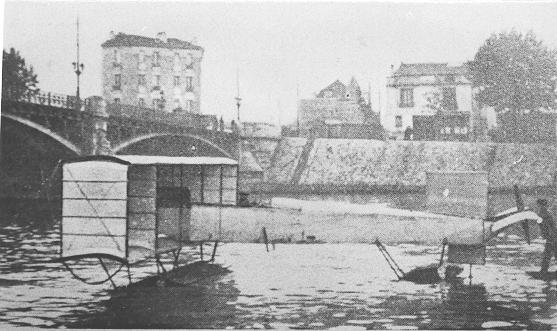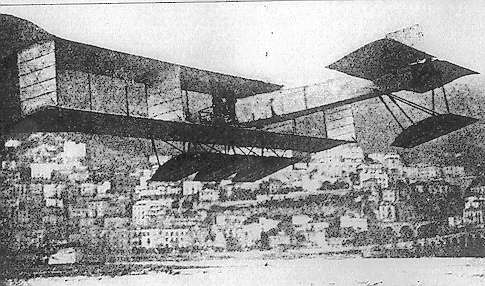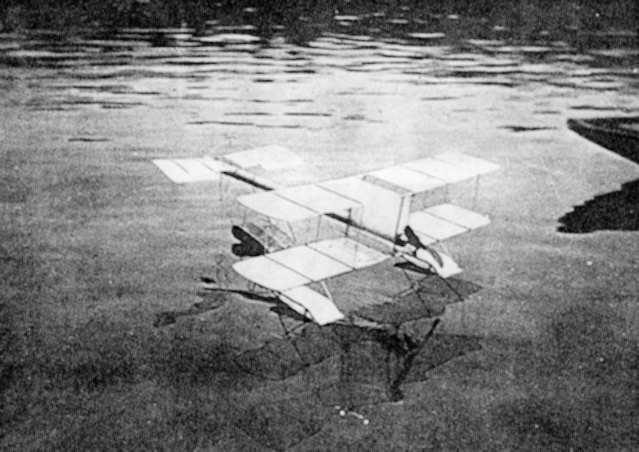The Voisin Canards
The Voisin Hydro Canard has become very popular in Peanut and Pistachio
contests. The reason is that although it gets high scale "bonus" points, it
is still a construction with a very good flight potential.
The Voisin Canards were built in some numbers, but with frequent modifications
and changes. In fact, no one appears to be similar to the other!
A problem with these early designs is how to get good documentation.
In this case it's not too hard, since Benno Sabel has made a
3-view which appears in Peanut & Pistachio No.6. The plane in this 3-view
(Voisin Hydro Canard I) is the one depicted in the photo below. A peanut
model plan is found in Model Aviation, Dec 85.

History
In 1910 the Voisin company needed a replacement for their famous, but now
obsolete, boxkite-like standard construction. The "box-kite" was modernised,
fitted with ailerons and a simplified tail-unit, and the front elevator was
discarded. This model then became the direct progenitor of the Voisin
world war 1 bombers. But aside of this evolution, one also experimented with
totally new types. One of these, which was to become
quite successful, was the Voisin Canard.
The first of these planes was tested in late 1910, and had been put
together from existing parts, the fuselage reportedly coming from an old
triplane. The wingspan was 36', and it was powered by a 50 hp Rossel-Peugeot
rotary engine. A 3-view of this machine is found in
The Aero, 11 jan 1911.
The fuselage was uncovered, and the wings were set with some dihedral.
The nose wheels were put
directly under the fuselage, so when at rest it assumed a very strange
looking, nose down, attitude.
Other Canards followed, now with covered fuselages and wings without dihedral.
Instead the wings were provided with side panels, as in the early boxkite
Voisins. In The Areo, July 1911, is found a 3-view of a two-seat
landplane of this type.
In 1911, seaplanes were a novelty which attracted much attention, and it was
decided to put floats on the Canard. This resulted in the Voisin Hydro Canard
I, shown in the photo above. It was flown by Maurice Colliex from the
Seine near Billancourt. In August 1911, one had fitted a Canard with both
wheels and floats, and Colliex made a flight from Issy to the Seine and back,
which got some attention.
Later models featured a fixed stabilizer with separate elevators. This
assembly was of broader chord than the earlier all flying elevator. A plane
of this configuration which
took part in the 1912 Monaco sea plane meeting, again piloted
by Colliex, is shown below. Note also that it has four floats instead of the
usual three. A similar looking machine was bought by the French navy as
their first aeroplane. The Russian navy also bought a few Canards.

Even in the old days, the Voisin Canard appealed to some model flyers.
While not a scale model, the plane below was obviously inspired by the
Voisin. The photo
is from the Musee de l'Air archives (courtesy WW1 Aero). No records exist,
but it is presumably from before 1914.

Thanks to Stockholm Technical Museum for access to the archive.


